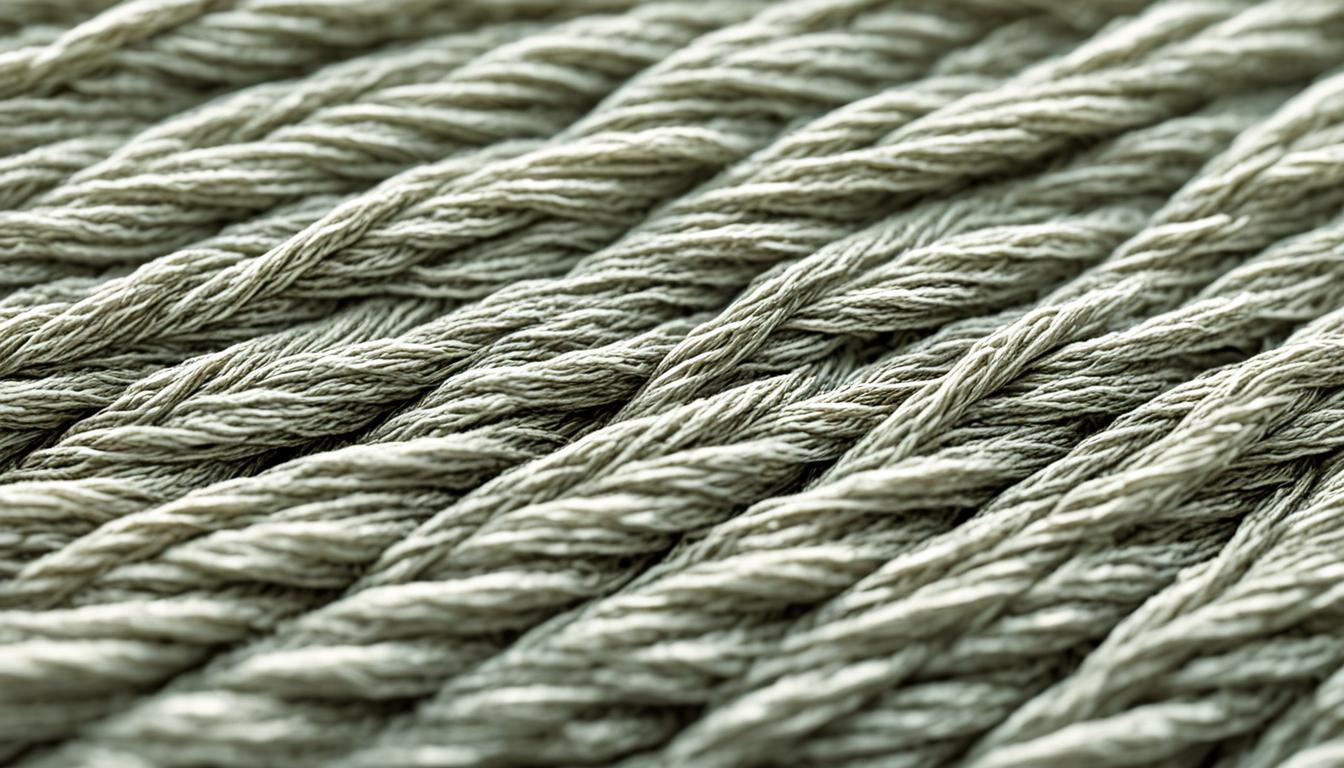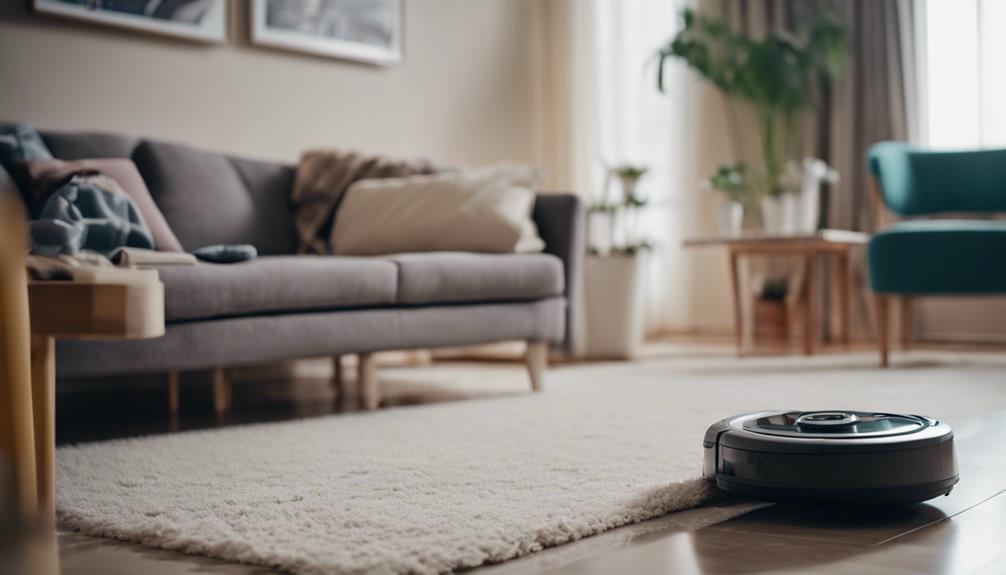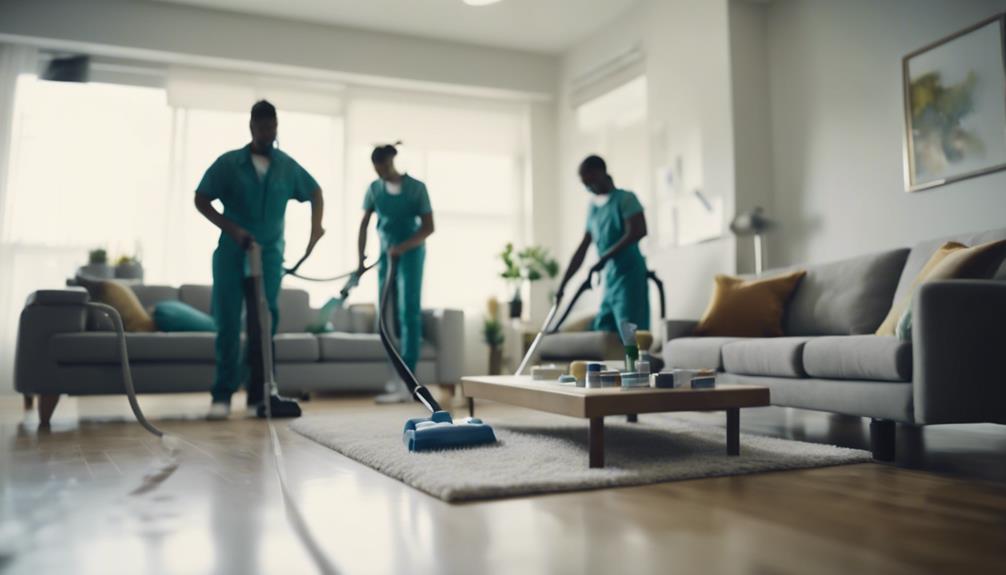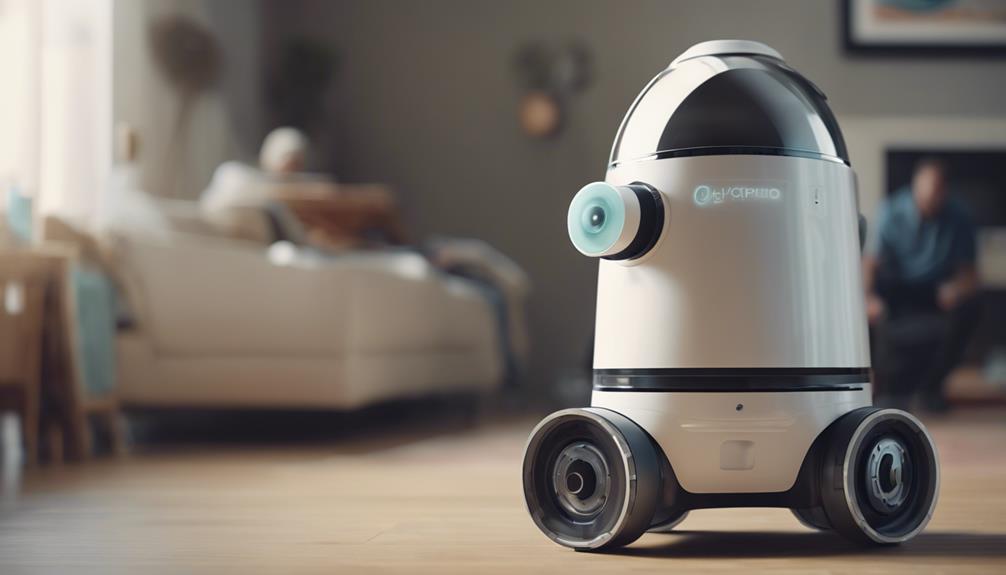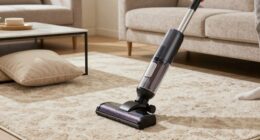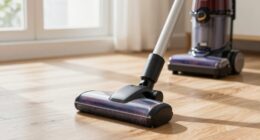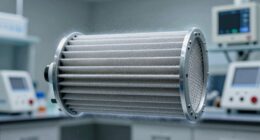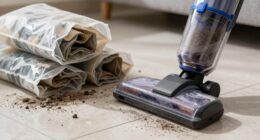Picture yourself strolling barefoot on a luxurious, spotless carpet. Experience the gentle fibers beneath your toes as you relax into its welcoming embrace. The crisp, clean fragrance permeates the room, causing you to grin with the knowledge that your home is a sanctuary of tidiness and coziness.
But keeping carpets clean is more than just vacuuming or spot cleaning. Carpets can hide dirt, allergens, and germs that threaten your health and the carpet’s life. A 2021 Home Advisor study found carpets can be 4000 times dirtier than toilet seats. They can hold several pounds of soil beneath and within them1.
To clean carpets well, set up a routine maintenance schedule. Clean your carpets at least once a week. If you have kids or pets, increase this to twice a week2. Regular vacuuming removes surface dirt and keeps it from getting ground into the fibers. Deep clean your carpets at least twice a year, either by hiring professionals or doing it yourself21.
To extend the life of your carpet and keep your indoor environment healthy, take some preventative steps. Using doormats outside and inside all entrances can trap soil and lessen dirt in your house2. Removing shoes at the door helps avoid bringing in more dirt2. Regularly cleaning HVAC filters traps dust in the air before it settles on your carpets, cutting down on dirt accumulation2.
For specific cleaning methods, you have many options. You can use common household items like distilled white vinegar, baking soda, and salt for carpet cleaning2. For thorough vacuuming, move furniture and items off the carpet. Vacuum slowly, especially in areas that get a lot of foot traffic2. For better stain removal, treat carpet stains quickly. Using a mix of distilled white vinegar and cold water works well for cleaning carpets2. You can also mix baking soda and salt for cleaning2.
By taking a comprehensive approach to carpet cleaning, your carpets will stay fresh, clean, and free from hidden dangers. So, start cleaning for a healthier home. Enjoy the beauty and comfort of well-maintained carpets for many years.
Key Takeaways:
- Carpets can be 4000 times dirtier than toilet seats, making regular cleaning vital for health1.
- Include regular vacuuming once a week or more, and deep cleaning at least twice a year in your routine2.
- Use doormats, remove shoes at the door, and clean HVAC filters to reduce dirt on carpets2.
- Household supplies like distilled white vinegar, baking soda, and salt can be effective for carpet cleaning2.
- For deep cleaning, move furniture and items off the carpet, vacuum slowly, and treat stains promptly2.
Materials and Tools You Will Need for Cleaning Your Carpet
To effectively clean your carpet, you’ll need the following materials and tools:
These items make it easier to remove different stains. This keeps your carpet fresh.
Now let’s look at the tools you’ll need:
- Vacuum cleaner3
- Steam cleaner3
- Soft-bristle brush
- Spray bottle
- Rubber gloves
- Optional fans or air movers
Having these items ready makes cleaning quicker and better. Carpet cleaner and stain removers target certain stains. Buckets, cloths, and cold water help dab and handle fresh stains like red wine4, blood4, and coffee or tea4.
Vacuums and steam cleaners keep your carpet clean overall3. A soft brush gets rid of dry blood4. Spray bottles and gloves are good for working with cleaners. If you have them, fans or air movers can dry the carpet faster.
With these tools and supplies, you’ll do a great job cleaning your carpet.
How to Deep Clean a Carpet? 15 Steps Approach
Keeping your carpet clean is key to its longevity. By following a straightforward guide, you can give your carpet a deep clean. This will help it stay fresh for a long time.
- Vacuum the entire area: Begin with vacuuming to get rid of top-layer dirt. This is a vital first step for a successful deep clean5.
- Perform a spot test: Always do a spot test with your cleaning solution. This prevents damage to your carpet6.
- Prepare the cleaning solution: Mix the cleaning solution as per the instructions. To quickly freshen up, mix white vinegar with hot water6. To brighten and tackle stains, use Oxygen Whitener6. For a deep clean, combine Oxygen Whitener with BioKleen Carpet & Rug Shampoo6.
- Pre-treat stains: Apply your cleaning solution to stains and let it sit for about 15 minutes6.
- Clean the carpet: You can use a steam cleaner or a manual brush with carpet shampoo6.
- Rinse the carpet: Rinse out any leftover cleaning solution. A white vinegar and water mix works well7.
- Blot up excess moisture: Use towels or fans to dry the carpet faster6.
- Vacuum again: Once dry, vacuum to pick up any remaining dirt6.
- Apply additional treatments: If needed, use deodorizer or anti-allergen treatments for freshness and less allergens6.
- Establish a maintenance schedule: Keep your carpet in prime condition with regular cleaning. Vacuum, spot clean, and deep clean every 12 to 18 months5.
Using this guide for deep cleaning will keep your carpet fresh and durable. With regular care, you can have a clean and inviting home.
Understanding Carpet Fibers: From Synthetic to Natural
Choosing the right carpet involves knowing about different carpet fibers. These fibers affect the carpet’s look, feel, and lifetime. You have synthetic and natural options, each with unique qualities and care needs. We’ll explore these fibers to help you pick the best one for your home.
Synthetic Fibers
Most carpets today use synthetic fibers. They’re durable, resist stains well, and come in many styles. Carpets made from synthetic materials include:
- Nylon: This is the top choice for carpets. It’s tough and great for busy areas. Nylon also resists stains effectively.
- Polyester: Polyester carpets feel soft and keep their color well. They resist stains but might not do as well in high-traffic spots8.
- Polypropylene (Olefin): Olefin carpets are budget-friendly. They don’t mind moisture or mildew. But, they can get damaged by too much friction or heat8.
- Triexta: Triexta is newer but performs well against stains and wear. It’s soft and holds color beautifully.
Synthetic fibers are great for busy homes or those on a budget. They generally outperform natural fibers in stain fighting8.
Natural Fibers
Natural fiber carpets are all about beauty and being kind to the planet. They come from renewable sources and can go back to the earth. Yet, they have different looks and care requirements.
Wool is the top natural carpet fiber. It’s durable, natural at fighting stains, and feels soft. Other natural fibers like sisal, cotton, and jute are great for adding a unique touch to rooms8.
Natural fibers might cost more due to material prices. They can also soak up stains faster and need careful cleaning9. Think about your home’s traffic, your budget, and your style before choosing9.
In summary, picking between synthetic and natural carpet fibers matters. Synthetics are tough and fight stains well. Naturals bring beauty and are eco-friendly. Reflect on your home life and tastes to find your ideal carpet.
The Basic Structure of Carpet Fibers
Carpet fibers are the backbone of a carpet’s performance. Their composition, shape, size, and how they are treated affect how a carpet looks and feels. Let’s dive into these important factors.
Composition
Carpet fibers fall into two groups: synthetic and natural. Fibers like nylon, polyester, olefin, and triexta are man-made. They are chosen for their strength and ability to resist stains10. Natural fibers include wool, cotton, sisal, and silk. These options are prized for their beauty and eco-friendliness10kc>.
Shape and Size
The design and thickness of the fibers affect a carpet’s texture and comfort. Some fibers are made with a non-round shape. This helps change how light is reflected, creating unique textures10. Thicker fibers offer a softer touch and more cushioning10.
Length and Twist
The length of the fibers affects a carpet’s finish and toughness. Long fibers give carpets a plush feel10. The twist of the fibers—how tightly they’re wound—matters too. Tighter twists provide better durability and less flattening over time10.
Treatment
Fibers might get special treatments to boost their features. Fibers dyed all the way through resist fading longer10. Some treatments help increase stain fighting ability and overall strength10. It’s wise to clean and care for your carpet as the maker suggests, depending on its material10.
Knowing about carpet fibers helps you choose the best carpet for your space. Keep in mind their type, design, length, and treatment. This way, you’ll get a carpet that fits your lifestyle and lasts for years.
Choosing the Right Carpet Cleaning Technique: Key Considerations
When picking a carpet cleaning method, think about a few crucial things. You must first look at how dirty and stained your carpet is. For very dirty carpets, a strong cleaning might be needed. But, for light stains or just to keep it clean, simpler methods work well11.
Different carpets need different cleaning based on their material. For instance, synthetic carpets can handle steam cleaning well11. Yet, natural fiber carpets need gentler care to avoid damage12.
Think about your budget and available time too. Deep cleaning methods like steam cleaning cost more but clean deeply11. Dry cleaning or encapsulation are cheaper, great for places that need to quickly use the carpets again1113.
If you’re eco-conscious, consider steam cleaning. It uses hot water and natural cleaners like baking soda and vinegar12. These choices clean well while being kind to the planet.
To decide, weigh all these aspects. Check your carpet’s condition, know its material, your budget, and eco-preferences. By thinking these over, you’ll find the best cleaning technique. It’ll leave your carpet spotless and fresh, whether for your home or business.
Vacuuming and Spot Cleaning
Keeping your carpets clean and fresh is all about regular care. Vacuum often to remove dirt and make your carpet last longer. If you have pets, vacuum two to three times a week to manage pet hair14. Homes without pets need just one vacuum a week14.
Tackling stains quickly is crucial for carpet care. With liquid spills, blot gently using paper towels or a white cloth. This stops the stain from spreading14.
To treat various stains, certain cleaners are needed. Mix 3 tablespoons of dish soap, 1 tablespoon of vinegar, and 2 cups of water for a homemade solution14. Or try 1 part dish soap with 2 parts hydrogen peroxide for tough stains14. Apply a bit of the mixture to the stain and dab gently. Work from the edges to the middle until the stain fades away14.
Baking soda is great for deep cleaning and freshening up carpets. Spread it across the carpet, wait 30 minutes, then vacuum. It absorbs smells and cleans deeply14.
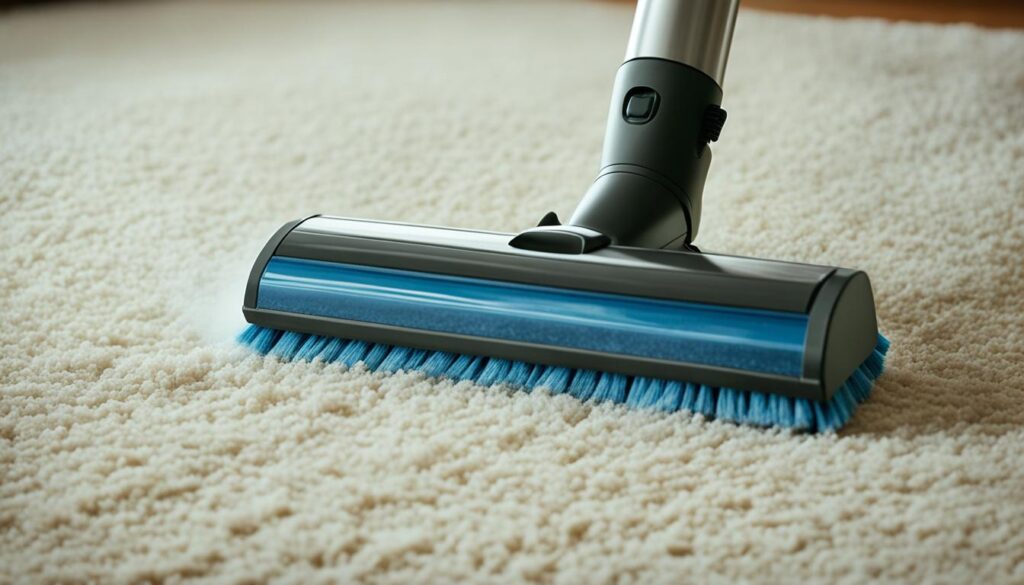
Using a carpet steamer? Start at the room’s far end and head towards the door. This way you avoid stepping on the clean, damp carpet14.
Vacuuming and spot cleaning regularly helps keep carpets new. Quickly dealing with stains and choosing the right cleaners matters a lot. With the right attention, your carpets will look great and last longer.
DIY Carpet Cleaning Methods with Household Supplies
If you don’t own a vacuum cleaner, no worries. You can still keep your carpet clean with everyday items. These DIY methods help save money and keep carpets looking fresh. Let’s dive into some simple cleaning techniques you can try at home:
Cleaning Loose Soil
Got loose dirt on your carpet? Grab an old broom, carpet rake, or carpet sweeper. Sweep over the carpet to pick up dirt and debris. This easy step helps prevent dirt from settling in your carpet.
Treating Spills and Stains
Spills and stains on carpets are bound to happen. But, you can clean them with things from your pantry. Mix vinegar, baking soda, and salt. Spray equal parts vinegar and warm water on the stain, then blot with a clean cloth. Next, sprinkle baking soda and salt over it. After a few hours, vacuum it up. This method fights stains and gets rid of odors.
Versatile and Effective Homemade Solution
You can make a strong cleaning solution with common supplies. Mix 2 tablespoons of Tide, 1/4 cup of LA’s Totally Awesome cleaner, 1 scoop of Oxiclean, and 1 teaspoon of Downy in hot water. This mix works in many carpet cleaners, like Rug Doctor and Bissell. It cleans carpets, rugs, cars, and couches. It’s a multipurpose cleaner for lots of surfaces.
Enhanced Stain Removal
Boost your cleaning power by pretreating stains with a mix of this solution and water. This mix helps lift tough stains for a cleaner carpet. For non-toxic or fragrance-free options, try vinegar. It’s great for those wanting greener cleaning methods.
Cost-Effective Solution
One of the best parts of DIY cleaning? It saves money. Making a gallon of cleaner costs about $1. Store-bought ones can cost up to $30. The DIY cost is just $1.00 per gallon, saving you a lot compared to brands like Rug Doctor. This shows DIY cleaning is both affordable and effective.
DIY cleaning lets you keep carpets clean without a vacuum. These methods are cheap and flexible, perfect for upkeep between deep cleanings. Keep your carpets looking great with these simple tips.
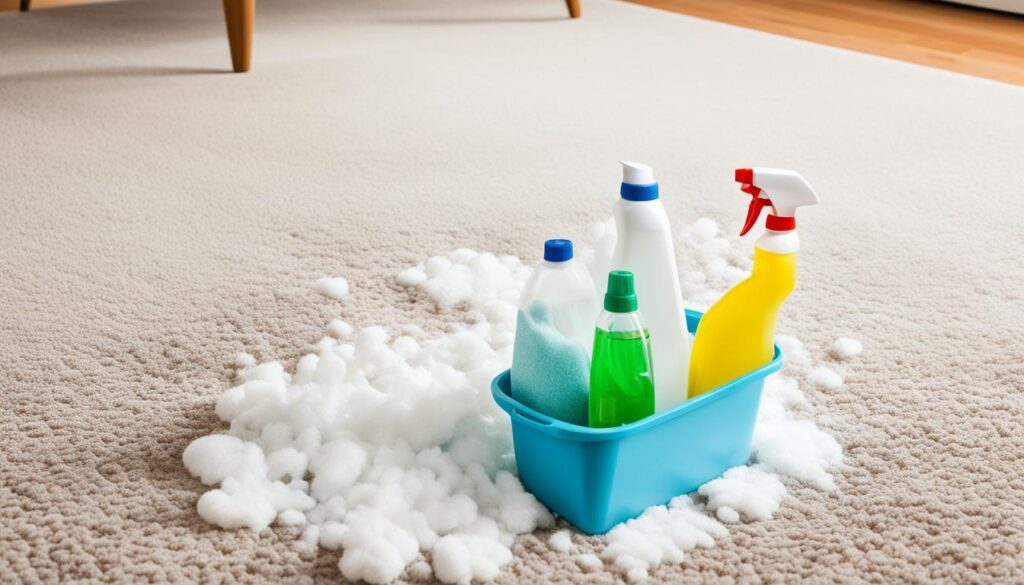
Conclusion
Keeping your carpets clean is key for a healthy home. Make sure to vacuum once a week15. Deep clean your carpets every 6 to 12 months to keep them fresh15. Using natural cleaners like white vinegar and baking soda helps too15.
A no-shoe rule inside, especially in the living room, cuts down on dirt15. Move your furniture around now and then to avoid uneven carpet wear15. For places that get a lot of foot traffic, think about getting washable rugs15.
Let your carpets dry well after steam cleaning15. Always check the carpet’s care label and try cleaning products on a small spot first15. Vacuums made for pets are great for getting rid of pet hair15. Quick action on spills stops stains from setting in15.
With these steps, your carpets will stay clean and fresh for a long time15. Don’t forget to check out a detailed carpet care guide for more info16.
